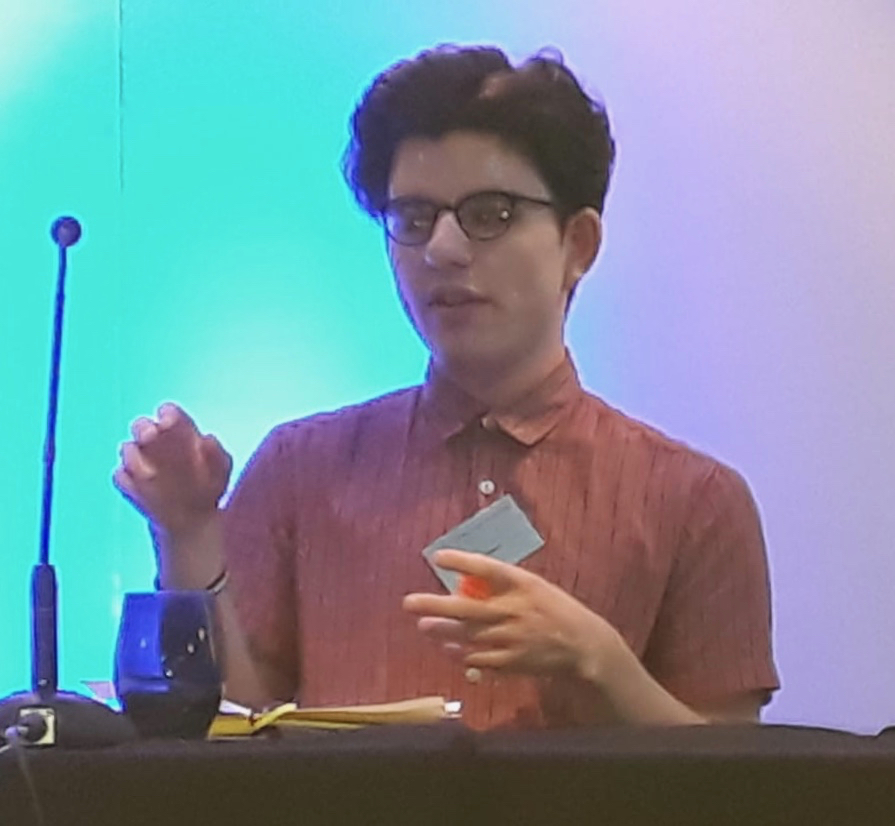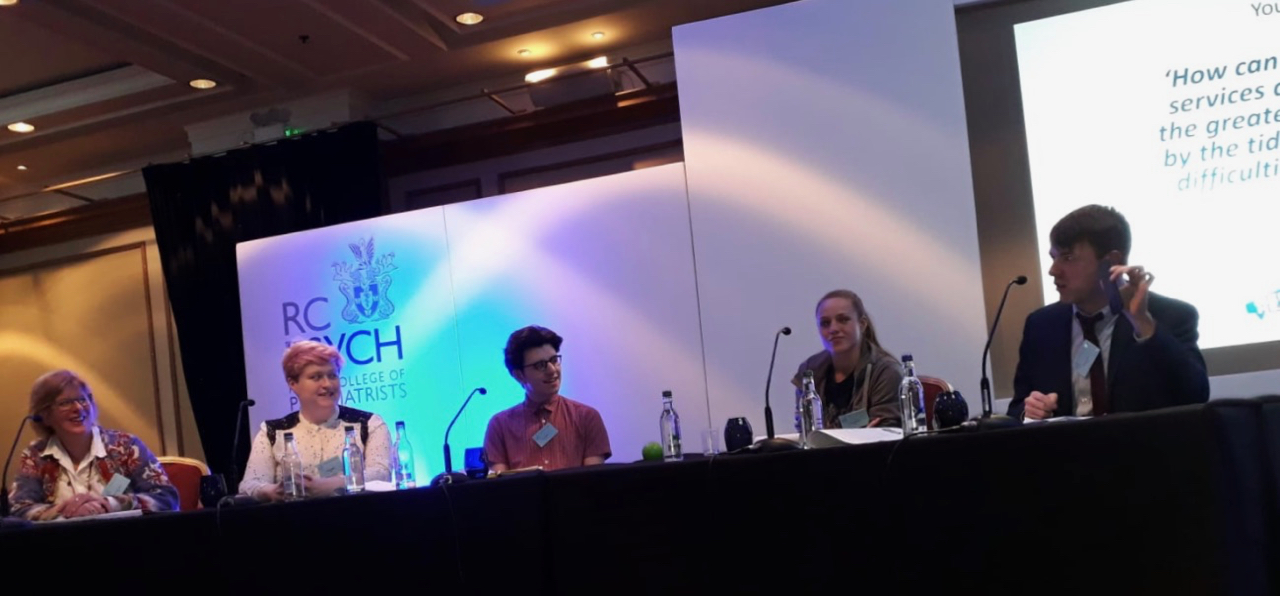 At last week’s Royal College of Psychiatrists CAMHS Faculty Conference held in Glasgow, Geraldine Mynors, Chair of the Scottish ADHD Coalition, chaired a ‘Harkness table’ debate. The participants were four young people with experience of Scotland’s mental health services:
At last week’s Royal College of Psychiatrists CAMHS Faculty Conference held in Glasgow, Geraldine Mynors, Chair of the Scottish ADHD Coalition, chaired a ‘Harkness table’ debate. The participants were four young people with experience of Scotland’s mental health services:
- Charlie MacKenzie-Nash, Volunteer Faculty Service User representative for the Royal College of Psychiatrists.
- Ross Pollard, a social researcher currently working with Adopt an Intern to help get people with disbilites into work
- Alex Lightbody, a student nurse
- Kareen Stewart, a care-experienced Ambassador on the Communities that Care project in Renfrewshire, for Who Cares Scotland.
The debaters chose and took on the challenging question:
‘How can we ensure that CAMHS services are available to those in the greatest need, and not flooded by the tidal wave of mental health difficulties experienced by young people today?’
The wide ranging debate was enthusiastically received by the audience of psychiatrists and other mental health professionals from across the UK. Some of the points where there was consensus were:
- The statistics on the increase in young people reporting mental ill-health and referrals to
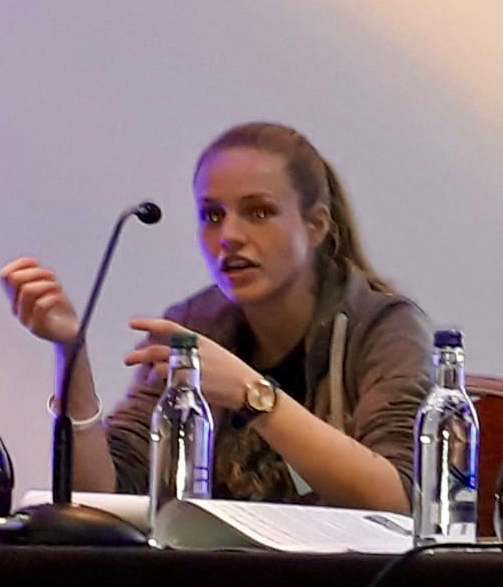 CAMHS speak for themselves – but it is unclear how much this is due to a welcome reduction in stigma about speaking out about it.
CAMHS speak for themselves – but it is unclear how much this is due to a welcome reduction in stigma about speaking out about it. - More work is needed to understand the role that social media and smartphone addiction have in exacerbating mental health problems – and how much these can also help. Austerity is also likely to
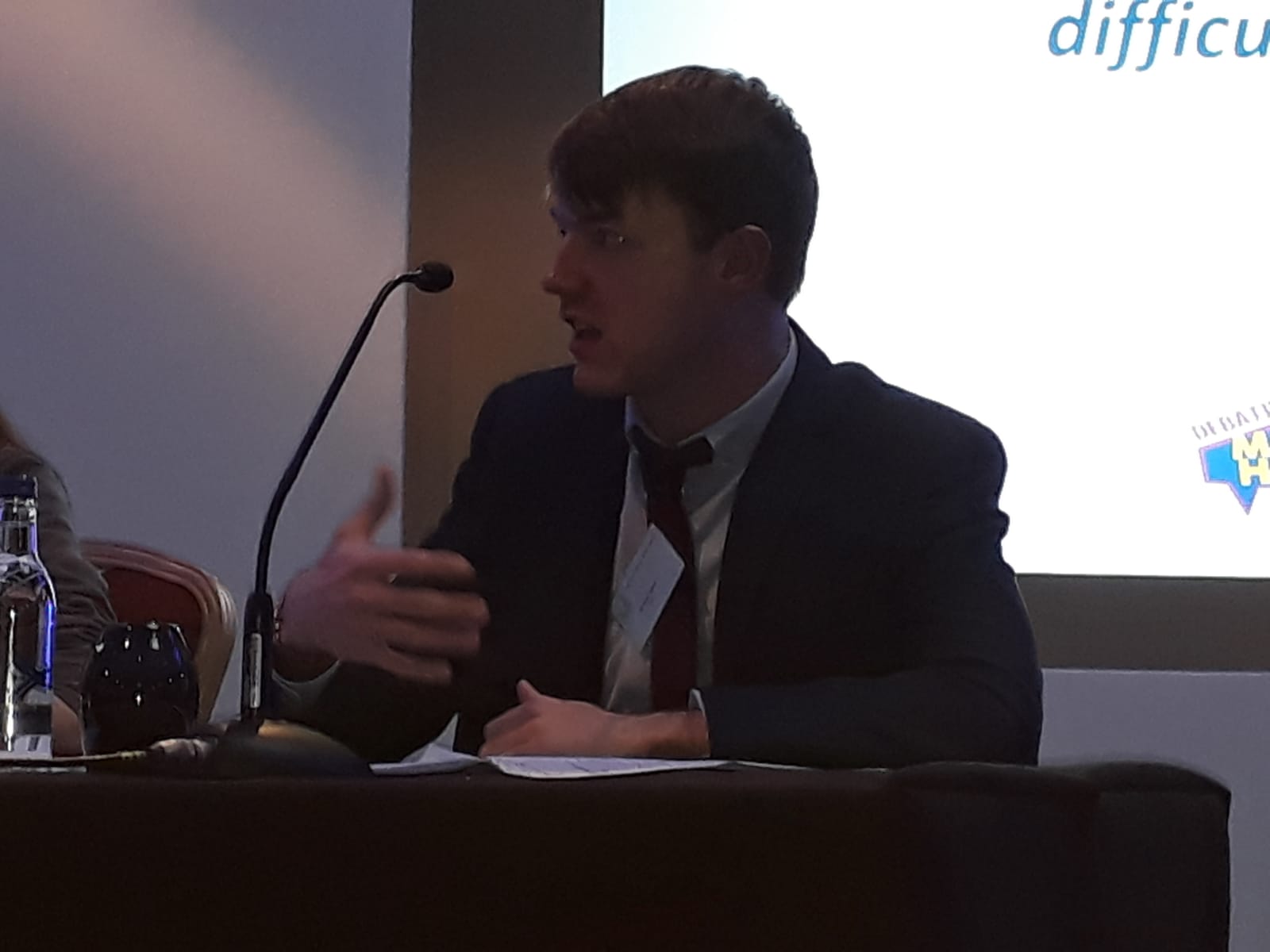 be linked to mental distress amongst young people.
be linked to mental distress amongst young people. - CAMHS services are under-resourced and clearly need more funding to prevent a much bigger bill in the adult mental health system and society at large.
- However, besides more resources, CAMHS services need to look at how they organise themselves and target their services. The criteria for accepting or rejecting referrals at the moment often seem arbitrary and need to be more rational – with more information about children referred gathered up front. Too many children have to repeat their story over and over again, and come up against staff who are ‘patronising’ and – in particular – seem to find it hard to relate to adolescents. Separate services for teens and young adults could help – possibly offering more group consultations and other age-appropriate interventions.
- Diagnoses and ‘labels’ can sometimes be profoundly unhelpful to young people and only add to their stress and anxiety.
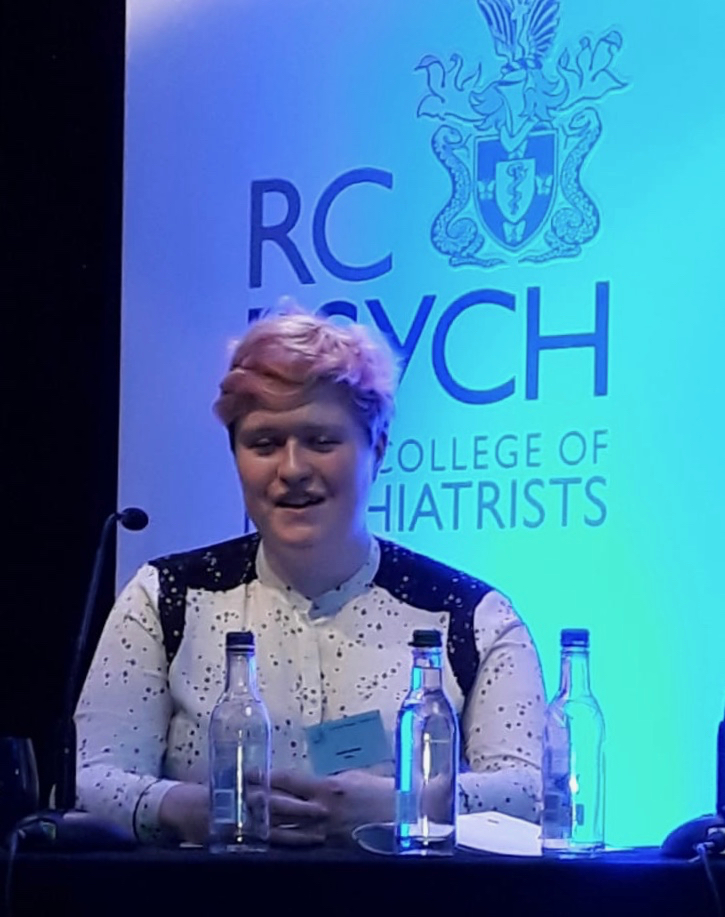 Words like ‘borderline personality disorder’ can carry real stigma. On the other hand, the young people with ADHD in the conference felt that a much earlier diagnosis would have helped them avoid other mental health problems down the line.
Words like ‘borderline personality disorder’ can carry real stigma. On the other hand, the young people with ADHD in the conference felt that a much earlier diagnosis would have helped them avoid other mental health problems down the line. - Mental health prevention needs a much greater emphasis – along with first line services which GPs can refer to (like school counsellors) before problems get out of hand. School is the place where most young people can be reached, but shouldn’t be the only setting for prevention work – youth workers and other youth activities play a huge role too.
The Scottish ADHD Coalition was proud to have been involved in this event, and impressed with the huge insight and courage shown by the young people involved in order to highlight the ways in which CAMHS services need to rise to today’s challenges.
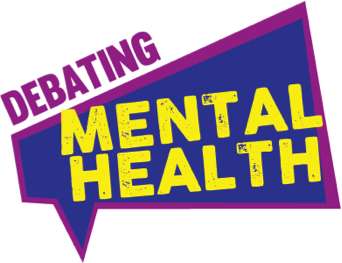 The debating team worked with Debating Mental Health to prepare for the debate. The Conference was chaired by Professor Helen Minnis of the University of Glasgow.
The debating team worked with Debating Mental Health to prepare for the debate. The Conference was chaired by Professor Helen Minnis of the University of Glasgow.

